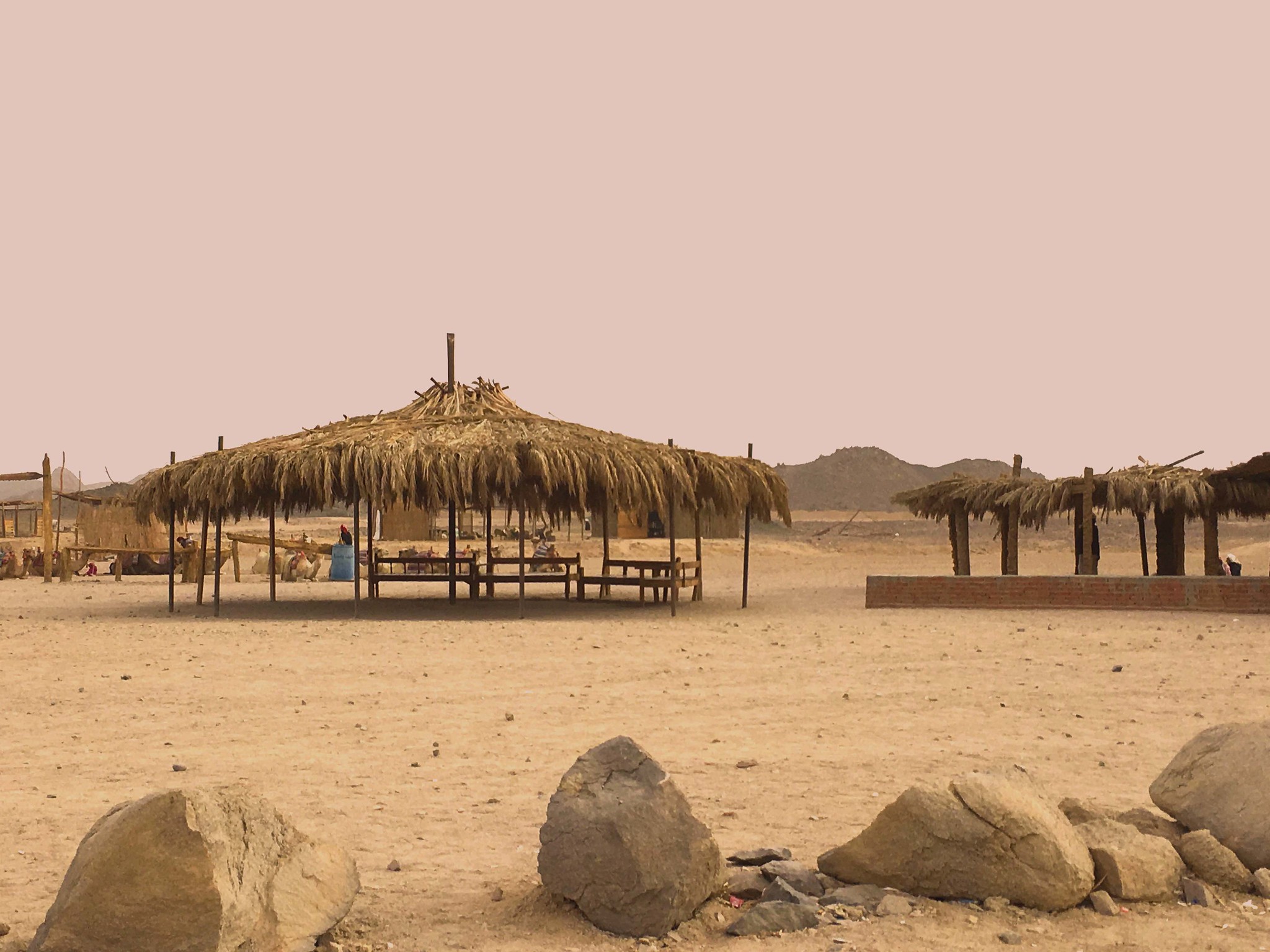Nestled in the sun-drenched desert landscapes surrounding Hurghada, Egypt, lies a hidden gem that offers travelers a rare glimpse into the rich tapestry of Bedouin life. A visit to a traditional Bedouin village near this popular Red Sea resort town provides an unforgettable journey into the heart of Egypt’s nomadic culture. This unique experience allows visitors to step back in time and embrace the warmth of Bedouin hospitality while gaining invaluable insights into their time-honored customs and way of life.
As you venture beyond the bustling streets of Hurghada, the urban landscape gradually gives way to the serene beauty of the Eastern Desert. The journey itself is a visual feast, with golden sand dunes stretching as far as the eye can see, punctuated by rugged mountains and occasional oases. This dramatic scenery sets the stage for an authentic encounter with one of the world’s oldest nomadic cultures.
Upon arrival at the Bedouin village, visitors are immediately struck by the stark contrast to modern life in Hurghada. Traditional goat-hair tents, known as “beit al-sha’ar” (house of hair), dot the landscape, providing shelter from the harsh desert elements. These ingenious dwellings are a testament to the Bedouins’ adaptability and resourcefulness, perfectly suited to their nomadic lifestyle.
The warm welcome extended by the Bedouin hosts is a hallmark of their legendary hospitality. Guests are typically greeted with offers of sweet tea or freshly brewed Arabic coffee, served in small cups as a gesture of friendship. This ritual, deeply ingrained in Bedouin culture, is an opportunity to relax and engage in conversation, fostering a sense of connection between visitors and their hosts.
As the visit unfolds, travelers have the chance to participate in various aspects of daily Bedouin life. One might observe or even try their hand at traditional crafts such as weaving intricate rugs or fashioning jewelry from local materials. These activities not only showcase the Bedouins’ artistic skills but also highlight the importance of these crafts in preserving their cultural heritage and generating income in a changing world.
Food plays a central role in Bedouin culture, and a village visit often includes the opportunity to savor authentic cuisine. Visitors may witness the preparation of dishes like zarb, a traditional meal where meat and vegetables are slow-cooked in an underground oven. The communal nature of Bedouin meals, often eaten while seated on cushions around a low table, reinforces the sense of community and hospitality that is so integral to their way of life.
For those seeking a deeper connection with the desert environment, many Bedouin village visits offer camel rides or guided walks in the surrounding area. These excursions provide insight into the Bedouins’ profound knowledge of the desert ecosystem and their sustainable way of life. Skilled guides share information about local flora and fauna, traditional navigation techniques, and the vital importance of water sources in this arid landscape.
As the day progresses, visitors often have the chance to experience the tranquility of desert evenings. Gathering around a campfire under a vast canopy of stars, travelers may be treated to traditional Bedouin music and storytelling. These oral traditions, passed down through generations, offer a window into the rich mythology and history of the Bedouin people.
For those wishing to fully immerse themselves in the experience, some tour operators offer overnight stays in the Bedouin village. Sleeping in a traditional tent, surrounded by the peaceful desert night, provides a unique perspective on the Bedouin way of life and a profound sense of connection with the natural world.
It’s important to note that while these village visits offer an authentic glimpse into Bedouin culture, they are often organized with tourism in mind. Responsible travelers should seek out operators who work closely with Bedouin communities, ensuring that visits are conducted respectfully and that the economic benefits flow back to the local population.
A Bedouin village visit from Hurghada is more than just a tourist attraction; it’s a bridge between cultures, offering a rare opportunity to step outside one’s comfort zone and gain a new perspective on life. The simplicity, hospitality, and deep connection to the land demonstrated by the Bedouin people serve as a powerful reminder of alternative ways of living in our fast-paced modern world.
As you return to the comforts of Hurghada, the memories of your Bedouin village experience will linger – the taste of sweet tea, the rhythm of traditional music, the vast desert sky. This encounter with one of Egypt’s most fascinating cultures adds a rich layer of depth to any visit to the Red Sea coast, providing travelers with stories and insights that will last a lifetime.

